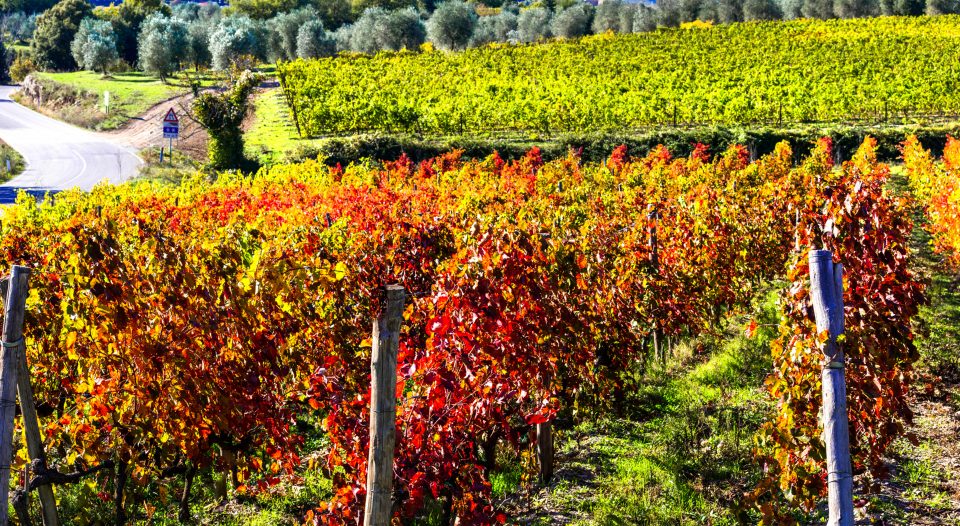Lectionary blog for Oct. 4, 2020
Eighteenth Sunday after Pentecost
Isaiah 5:1-7; Psalm 80:7-15;
Philippians 3:4b-14; Matthew 21:33-46
I recently co-hosted a training for lay leaders about Lutheran Christian theology. One issue that came up, as it always does, was the relationship between God’s grace and human good works. The main presenter addressed the issue by saying that Martin Luther’s key insight was that God’s grace comes first and does all the salvific work. We then choose to live a life of gratitude that is characterized by daily dying to self, daily being born again in Christ and daily devoting ourselves to the good works that God has set out for us to do (Ephesians 2:10). The “Song of the Vineyard” from Isaiah, and Jesus’ adaptation of it, perfectly illustrate God’s first move of graciousness toward us, and then the expectation that we live our gratitude through service to God and neighbor.
The prophet Isaiah paints a beautiful picture of God as a devoted vintner. God selects a location on the hillside with good light and suitable terroir (5:1). God dug all the stones out of the soil and used them to make a wall, a watchtower and a winepress (5:2). A noble vine שֹׂרֵק was planted that produced a brilliant dark red species of grape (I used to drink a homemade version of wine made from this variety of grape in Morocco, where it’s still cultivated). But when God inspected the yield after all this work, the vines yielded stinking, sour wild grapes בְּאֻשִֽׁים that have little sugar and could only make sour wine. Despite all of God’s gracious work, which should have enabled the production of delicious fruit, a sour harvest appeared. So God tore down the vineyard.
Isaiah explains the metaphor by saying that God graciously planted the people of Judah in a delightful land and, as a response to this grace, looked for a harvest of justice and righteousness (5:7). But instead of justice and righteousness, the people abused their neighbors, causing bloodshed and a cry of distress.
The verses immediately after this week’s lectionary make sure that we know that God is addressing this prophesy to the rich and powerful who economically oppress and squeeze out the poor, for whom God shows special concern. This is the answer to the psalmist’s question of why the vine that God had planted was left without protection (Psalm 80:12). The vine didn’t respond to God’s love by producing righteousness and justice for the poor and downtrodden.
The prophet Isaiah paints a beautiful picture of God as a devoted vintner. God selects a location on the hillside with good light and suitable terroir. God dug all the stones out of the soil and used them to make a wall, a watchtower and a winepress. A noble vine was planted that produced a brilliant dark red species of grape.
Jesus adapted this well-known section of Isaiah to speak about how civil and religious leaders of his time also didn’t produce the harvest of righteousness and justice that God expected. Using Isaiah’s words, Jesus told the tale of God preparing a vineyard but added another element to his parable. The landowner rented out the vineyard to workers and sought to collect what he was due at harvesttime. The people who had been placed in authority over the vineyard didn’t respond with gratitude in sharing the harvest. On the contrary, they abused and killed those sent to remind them of what they owed God because of God’s gracious gift and responsibility in keeping the vineyard. The wicked authorities felt that they must send away, abuse and even kill those who reminded them of what they owed, including the landowner’s son.
God expects (Isaiah 5:2) and looks for (5:7) a harvest of justice. God is certainly willing to do all the difficult work first. God lovingly prepares an environment for peace, gives laws to guide us and even graciously forgives all our sins by means of Jesus’ death and resurrection. As a result of all God has done for us, God expects us to live into our baptismal callings. We work in a spirit of gratitude to love God by living self-sacrificially to produce a harvest of love and justice for our neighbors. When that harvest is not immediately forthcoming, God sends prophetic servants and even God’s own son to remind us that we must respond to God’s grace by producing good fruit for the kingdom of heaven. This isn’t optional—it’s the heart of what being a disciple of Jesus means.
We confess that we cannot save ourselves, and certainly our good works won’t buy our way into heaven. And, God’s word and God’s Word are profoundly clear that God demands a harvest of justice and righteousness from God’s people. It is our delight to respond to God’s grace with lives of gratitude that produce good fruit for God and for our neighbors.





